Orlando (1992)
Directed by: Sally Potter
Written by: Sally Potter
Starring: Billy Zane, Charlotte Valandrey, Quentin Crisp, Tilda Swinton
HCF may be one of the newest voices on the web for all things Horror and Cult, and while our aim is to bring you our best opinion of all the new and strange that hits the market, we still cannot forget about our old loves, the films that made us want to create the website to spread the word. So, now and again our official critics at the HCF headquarters have an urge to throw aside their new required copies of the week and dust down their old collection and bring them to the fore…. our aim, to make sure that you may have not missed the films that should be stood proud in your collection.
HCF REWIND NO.74. ORLANDO [1992]
AVAILABLE ON DVD AND BLU RAY
RUNNING TIME: 96 mins
In the year 1600, Queen Elizabeth I takes a fancy to an androgynous young nobleman named Orlando. After they have been companions for some time, Orlando visits the aged and now very frail Elizabeth. The Queen promises her a large tract of land and a castle built on it along with a generous monetary gift which she will only bequeath to him if he consents to her command; “Do not fade. Do not wither. Do not grow old.” Both he and his heirs will keep the land and inheritance forever if she accepts. Orlando does indeed accept and, as the Queen dies, embarks on a very strange life which will take in many experiences and span centuries…..
I didn’t know what to make of Orlando when I first saw it upon its cinema release, but it stayed with me for years and on a second viewing, very late one night on TV, when both the body and the brain are probably more receptive to films that are ‘different’, I fell in love with it. Let me say straight anyway that this is a very, very strange film, and that if you’re literal minded and want things to make sense, this may not be the film for you. This is the kind of movie where the term ‘plot hole’ is irrelevant. The novel on which it is based by Virginia Woolf is often described as a feminist tract and much of that is in the film, but to be honest I prefer to see it as a really weird, extraordinary fantasy. Certain elements may be similar to films like Highlander, but really there is nothing like it, it’s one of a kind. It’s full of wit, is quite beautiful and, even if it irritates or even bores [it’s a very slow moving film, though I love the way it dwells on images and moments], you probably won’t forget it.
I actually read Woolf’s novel a few years ago and, though I don’t consider myself to be totally stupid, I found it hard to get through, though its audaciousness and originality cannot be stressed enough. I was most struck though by how well the film had simplified and condensed the book while still retaining its essence and its meaning. I would imagine that if a film had not existed, most people after reading the book would say that it was un-filmable. The film was writer/director Sally Potter’s [a filmmaker whose work is always interesting but has never wowed me except for Orlando] first major feature production [1983’s The Gold Diggers, despite being an intriguing film, barely got released] and was filmed on a very low budget. It was the first major British production to be shot in places like Russia and Uzbekistan as the Iron Curtain was falling. Certain scenes were improvised virtually on the spot; a drinking scene in the desert was inspired by an actual banquet Potter threw for a Russian mayor to get his permission to shoot at a local castle, and at least one scene of Orlando viewing her life on a film, was discarded. Such a bizarre and self-consciously ‘arty’ project could never have been a popular success but it held its own, helped by a very wide release which I doubt would happen now.
So what we basically have is the tale of a person who lives through four centuries and changes sex half way through, though simplifying Orlando down in this way raises questions. At times, for example, he/she seems to travel forward in time. Does it matter if this is not explained? Not really. Orlando is a person who lives her life out of synch with most of human kind, and that’s all we really need to know as he/she experiences different kinds of existence. After being given the gift of immortality by Queen Elizabeth, he first experiences the pangs of love followed by heartbreak. Then he becomes a poet, and this section, like a couple of others, may seem a little dull, as if little is happening, but if you focus on the dialogue and the performances there is much to enjoy. After this he becomes an ambassador to Constantinople, where, spurred on it seems by dislike of war and his own inability to kill, he wakes up one morning to find he has transformed into a woman [with some surprising full frontal nudity here for a ‘PG’ rated film], though as with everything else she shrugs it off. “Same person. No difference at all… just a different sex”. After this her life goes on pretty much as before, though of course being a woman Orlando is now often considered something of a second class citizen. Yes, the feminist aspect is certainly prominent here but is handled with considerable wit, such as a society gathering where her sex is submitted to the rudest put-downs. Orlando cannot even legally own her own property, though this is also because, having lived for over 200 years, she must be pronounced dead.
The humour in Orlando is considerable in what some may see as a stuffy art house flick, often coming from the way the various sections are approached and the way events take place. Take for instance the overwrought Victorian melodrama of the meeting between Orlando and Billy Zane’s character Shelmerdine. Literary conventions and even archetypes are mocked, while we asked to accept peculiar role reversals such as Queen Elizabeth being played by not only an old man but that man being the openly [and controversially] homosexual Quentin Crisp. No attempt is made to disguise the fact that Tilda Swinton is female in the first half [though it adds an erotic frisson to her scenes with Sasha the Russian princess she falls for]. Throughout, Orlando asks us to suspend our disbelief. At least one character appears to be immortal like Orlando but this is never properly addressed. The film even breaks the fourth wall at times with Orlando addressing or just looking at the camera. An angel that appears at the end looks terribly fake, but seems to be there more for symbolic purposes [angels as immortal, hermaphrodites, etc]. Potter and her cinematographer Aleksie Rodionov seem infatuated with Swinton’s face [understandable], to the point where the film verges on being a study of her striking appearance.
The small budget at times hinders things, such as during a mostly off-screen battle, but it doesn’t hinder the movie from creating its highly stylized, almost fairytale-like view of the past, as if they are Orlando’s rose-tinted memories. Especially striking are some early scenes on ice which must have been a nightmare to film, while there is also one of my favourite time-jumping scenes of all time. Orlando is tired of living life as a second-class citizen [woman] and, after turning down a condescending proposal of marriage from an admirer, runs into the maze that is in the gardens of her house. The music, initially hesitant, gathers in momentum as she seems to will herself to be transported to another time and runs through the maze. Almost subliminally we notice she is wearing different clothes and runs into a mist, the mist that will take her forward many decades. A more conventional film would have had Orlando not wearing different clothes until she is through the mist and out the other side, but this one has her transformed before. The busy string patterns in the score turn to rather romantic piano chords and melody as Orlando falls on the ground as Shelmerdine approaches on horseback and we are in a different world. It’s a sublime moment or two of cinematic magic, one of those scenes that I can’t entirely explain why I love it so much, but it sums up much of what I love about cinema.
One or two performances are below-par. I’m especially talking about Billy Zane, who is even more wooden than he normally is, but I sometimes wonder if that was what he was asked to be like? Jimmy Sommerville makes two strange appearances and sings two songs including a pretty annoying one at the end, but the music score by Potter and David Motion is fantastic. It’s one of those scores that is not only an essential ingredient in the film but is a great album to listen to in its own right, weaving a considerable spell on the listener. I suppose you could say it’s ‘ambient’ crossed with ‘period music’, but that does it an injustice; it’s far more than that in the effect it has. A few scenes in Orlando seem to be a little too long while others are too short, and I wish it was a little longer. You can call it pretentious, and you’d probably be right, but if you fancy something very offbeat you should really give it a go. Beautiful, maddening and audacious, it’s a remarkable film.

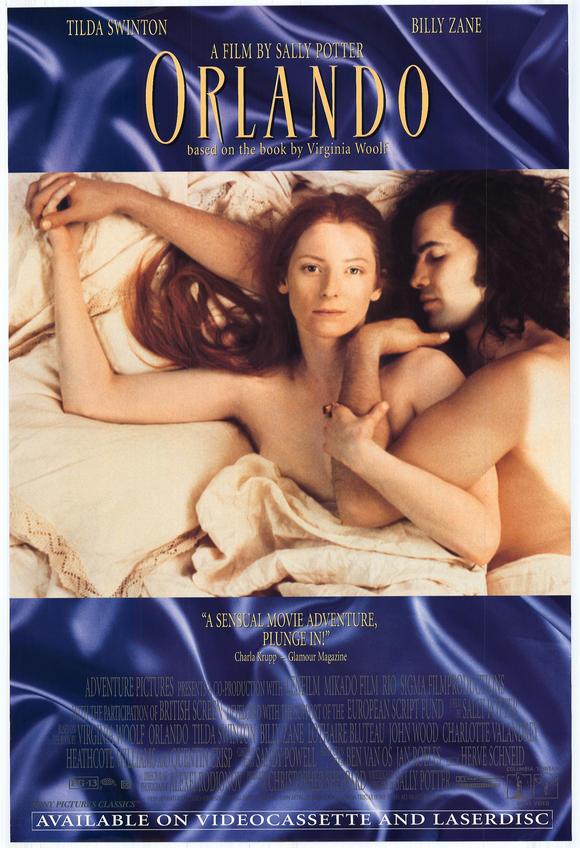
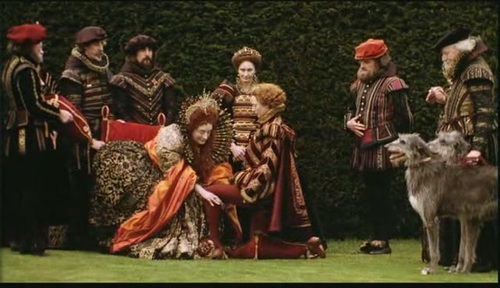
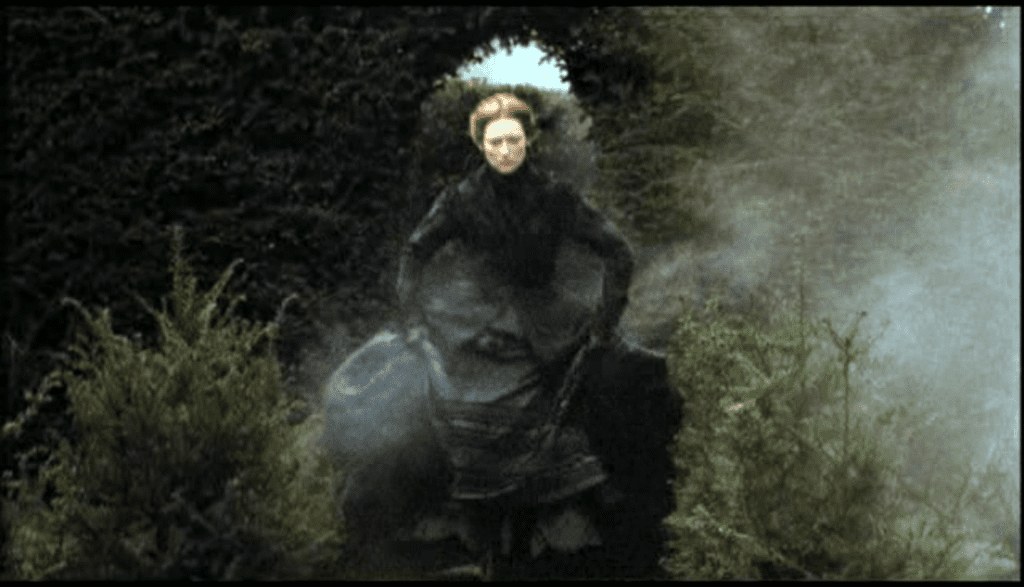



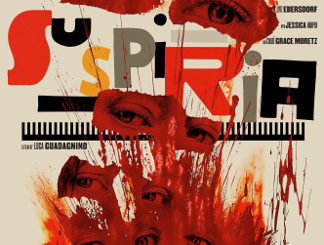
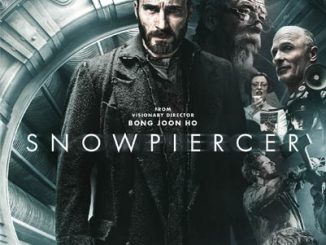
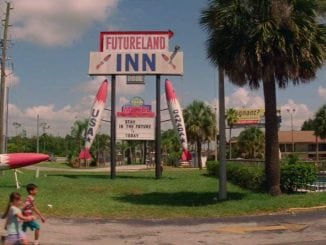
Be the first to comment